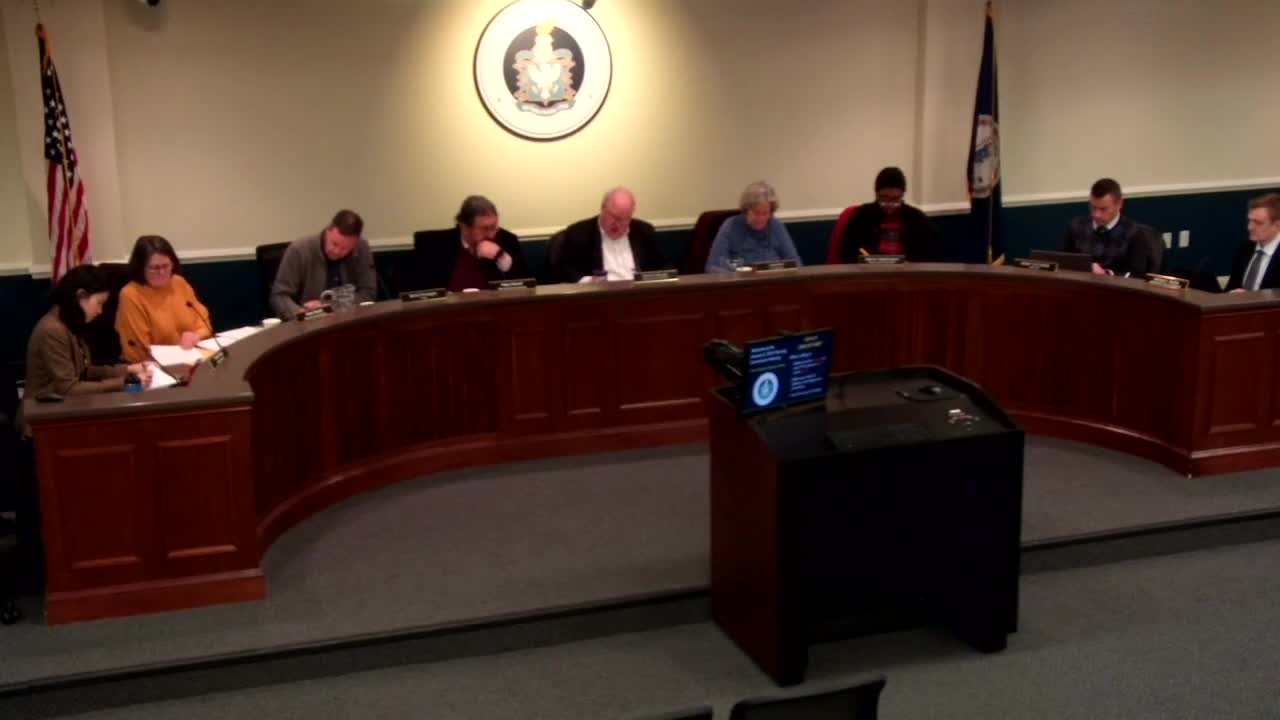Planning Commission recommends zoning change to preserve some nonconforming single‑family homes in B‑2 and M‑1 districts
Get AI-powered insights, summaries, and transcripts
Subscribe
Summary
The Harrisonburg Planning Commission voted to forward an amendment to the city zoning ordinance that would allow certain nonconforming single‑family detached dwellings in B‑2 and M‑1 districts to retain residential status under specific limits, sending the measure to City Council with a favorable recommendation.
The Harrisonburg Planning Commission voted Jan. 8 to recommend a zoning ordinance amendment that would allow certain nonconforming single‑family detached dwellings in the B‑2 (general business) and M‑1 (light industrial) districts to continue as residential uses under specified limits.
Planning staff told the commission the amendment would let an otherwise nonconforming single‑family detached dwelling that has been converted to contain multiple dwelling units or increased in occupancy remain a nonconforming single‑family dwelling provided the total square footage of the structure is unchanged and the occupancy is limited to one family or two unrelated individuals. Staff recommended approval and said the change was intended to address a small number of existing properties — including a property on North Liberty Street considered at an earlier meeting — while maintaining the city’s land‑use goals.
The measure matters because, under current rules, an increase in intensity or expansion of a nonconforming residential use typically causes the property to lose its nonconforming status and be required to meet the underlying district regulations. Planning staff said the proposed language is designed to be narrowly tailored to avoid unintended rezonings and to clarify that ordinary repairs to nonconforming buildings remain allowed. The staff presentation also noted that of roughly 110 parcels across the city zoned B‑2 or M‑1 with single‑family detached dwellings, about 30 are identified as commercial or limited commercial in the future land use guide and about 10 are identified as industrial.
During more than an hour of discussion, commissioners questioned whether the occupancy limit should be reduced to single‑family only or left at the proposed one family or two unrelated individuals. Commissioner Alcindy asked whether the amendment would still allow such units to be rented; a planning staff member answered that the amendment would not change whether a property may be rented and that the proposal intentionally set the occupancy at the most restrictive existing standard used in the city’s Urban Residential (UR) district. Commissioner Finnegan and others said the approach represented a pragmatic compromise that would avoid evicting current residents while maintaining incentives to align properties with the comprehensive plan over time.
Planning staff read the draft ordinance language into the record and explained that the amendment would permit continuations of nonconforming single‑family detached dwellings if (1) the square footage remains unchanged and (2) occupancy is limited to one family or two unrelated individuals, and would not prevent enforcement of the Uniform Statewide Building Code. The staff presentation and the commission’s discussion emphasized that the amendment is narrowly targeted to single‑family detached dwellings and would not apply to duplexes, townhouses or apartments.
Chair Richard Baugh called for a motion to approve the staff‑proposed ordinance amendment. The commission moved and seconded the motion and then took a roll‑call vote. Commissioners recorded their votes in favor, and the commission approved the amendment by voice/roll call; Chair Baugh said the measure will be sent to City Council with a favorable recommendation. Staff notified the commission that the item is scheduled for City Council consideration on Feb. 11.
The commission’s formal action forwards the proposed ordinance to City Council; any change in local law will depend on Council action and any subsequent amendments. The commission’s packet and staff presentation are the record of the technical details that describe which parcels and circumstances the amendment would affect.
